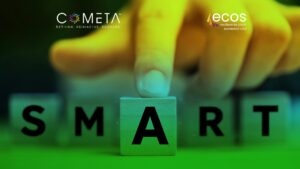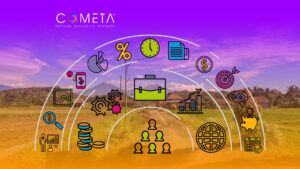Why is it relevant to build trust in accompanying processes with external consultants? Because it enables processes to be successful.
Devoting time and thought for trust building creates an atmosphere where people in our organization feel comfortable to:
· Become involved in the process.
· Share their opinions assertively and openly.
How do we build trust between ourselves and the consultants?
Trust building does not happen automatically, but it results from open communication. It is necessary to build this relationship to achieve our objectives.
Therefore, we must consider two relevant moments:
1. Before launching the process
At this first moment, we must ensure that we want to have open, respectful, and assertive communication with all the staff. This is the moment to hold conversations and confirm that we understand the consulting team methodology to accompany our process. This is the basis for building trust, so speaking clearly and honestly is vital. We should not be afraid to ask questions, even if they seem irrelevant or obvious. The consulting team should be open to our suggestions for their methodology, which is to incorporate our observations and to reach agreements when they consider that adjusting the methodological proposal could affect the process.
Before launching the accompanying process, we must declare possible conflicts of interest that may affect the process in a timely way and design strategies that will allow us to resolve them.
2. During the process
Making an initial assessment and having the consulting team interview as many people as possible is very valuable. This is particularly important in strategic thinking processes, as it enables:
● Interactions between all the participants in the process, both from the organization as well as from the consulting team;
● Trust building by opening a space to pose questions and dispel any doubts before launching the process.
Therefore, these steps allow us to establish a rapport before properly launching the accompanying process, prompting productive and innovative discussions.
The consulting team must be willing to answer questions
An essential aspect of trust building in every consulting process is to reach rules of coexistence for our processes. These are the basic rules for us to communicate properly and respectfully and feel comfortable expressing our opinions.
During assessments and discussions on sensitive topics, we should ensure that all the information shared in written or oral form is confidential. Therefore, it is necessary to sign a confidentiality agreement. This is part of the work ethic of our organization and the consulting team.
The process must ensure the following:
· Let everyone at the organization make their voices heard.
· Listen to all people willing to participate.
· Incorporate all the remarks in the discussion.
What should be done if we cannot build trust at this point?
If our work style or the expectations from both sides do not match, we can try to settle differences and reach agreements. Looking for alternatives is a good idea if we cannot reach common ground. This situation is unusual, but it may be the case that working together is not feasible.
Why is it relevant to build trust?
If there is a lack of trust between the organization and the consulting team, it will be challenging to implement the process. The success of an accompanying process led by external consultants is based on our trust in their methodology and objectives.
Therefore, we must feel comfortable with:
● The methodological approach of the consulting team;
● The way our questions, opinions, and points of view are taken into consideration during the discussion.
● Clear rules of coexistence that encourage the participation of everyone to achieve objectives and build a consensus that will improve our work;
● Constructive and purposeful discussions.
The success of the accompanying process lies in establishing terms of reference specifying the purpose, methodology, products, duration, and costs.
Trust between our organization and external experts is the key to a productive deliberation process, which translates into better strategies to do our work and achieve our institutional objectives.
Imagining and defining the impact you want to make on society depends mainly on trust and communication between external consultants and your organization, as these aspects are critical to the success of your processes. Before you start, and all along the way, you must stop for a moment to think and rethink expectations, potential conflicts, and work styles to ensure that all the stakeholders feel comfortable and that there is a collaborative environment to leave the collective mark you are looking for.





